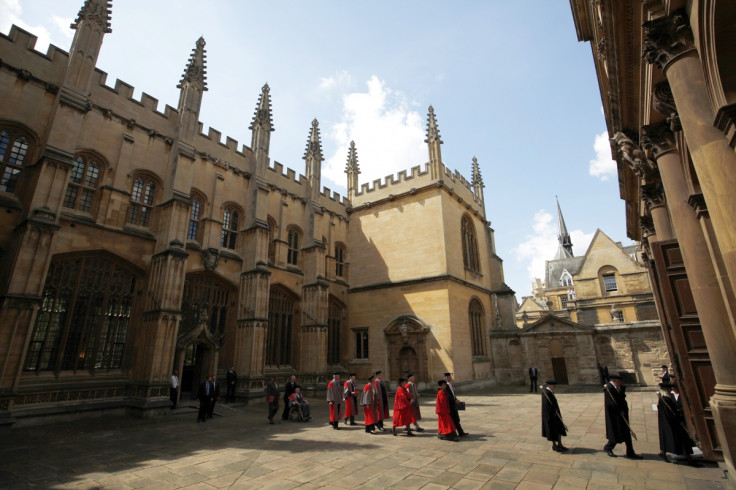Graduate salaries fail to keep pace as student debt soars

KEY POINTS
- Education chairman says UK obsessed with academic degrees.
- Robert Halfon believes labour market saturated by graduates.
- Calls to rebalance higher education to address intermediate skills shortage.
Graduate salaries vary wildly with too many students putting themselves in £50,000 of debt just to receive "paltry" salaries, the chairman of the Education Select Committee has said.
Conservative MP Robert Halfon said that between a fifth and a third of graduates end up taking non-graduate jobs in a labour market that "does not need an ever-growing supply of academic degrees".
Halfon said the UK had become obsessed with academic degrees. That had created an education system in which "intermediate and higher technical offerings are comparatively tiny".
This intermediate skills shortage, Halfon said, represented an opportunity to rebalance the UK's education system.
"If we are going to continue to lavishly furnish universities with taxpayers' money, we need to think about how universities can specialise in these areas," argued Halfon.
"Existing universities that do not provide a good return on academic courses could reinvent themselves as centres of technical excellence."
Halfon argued that institutions traditionally considered to be part of the elite must prove they are imparting useful skills. "Universities are an integral part of the machinery that feeds into the jobs market," he said. "It is reasonable to hold them accountable for the extent to which they prepare students for the world of work."
The Economist's "value-added" university rankings - comparing graduates' wages with what they would have been likely to have earned without a degree - listed Portsmouth University and Aston University as the top two institutions.
Neither university is in the elite Russell Group. "While some Russell Group universities deserve their recognition as elite institutions, others appear to trade well on their brands, while their less reputable counterparts remain unrecognised," Halfon suggested.
Of the 59 institutions receiving a gold standard in the government's teaching excellence framework, 51 were not in the Russell Group.
Degrees remain 'an excellent investment'
In response to Halfon's comments, Universities UK told IBTimes UK: "Official figures are clear that, on average, university graduates continue to earn substantially more than non-graduates and are more likely to be in employment. A university degree remains an excellent investment.
"We must, however, be careful to avoid using graduate salaries as the single measure of success in higher education. Many universities specialise in fields such as the arts, the creative industries, nursing and public sector professions that, despite making an essential contribution to society and the economy, pay less on average.
"University graduates are also in increasing demand from employers. The latest survey from the Institute of Student Employers revealed that the graduate jobs market is expected to grow this year, with an estimated 11% rise in vacancies. If the country is to thrive, it needs more, not fewer, skilled graduates."




















